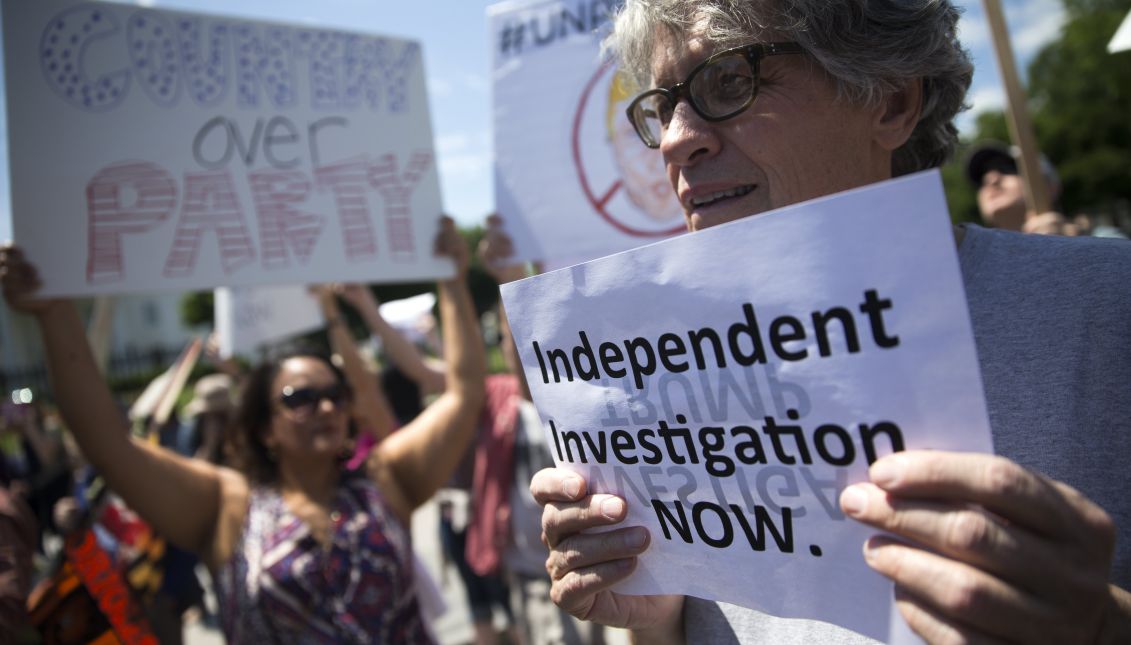
Code-Cracking: Deconstructing James Comey's Dismissal
The president of the United States denied on Thursday any collusion between his presidential campaign and Russia in his first interview since firing FBI chief…
Analysts, officers and lawmakers in Washington DC are still trying to find clear explanations to understand President Trump's abrupt firing of James Comey, the FBI director, on the beginning of this week. The dismissal of Comey is officially linked to his inefficiency to lead the agency, which presumably led him to mishandling the issue of the Russian interference during the past presidential elections and the investigation on Hillary Clinton's emails. However the exact reasons are not clear water yet.
One explanation came from President Donald Trump himself, who yesterday said he’d planned to fire the FBI director “regardless” of the Deputy Attorney General's recommendation. What’s it mean for the president to fire a principal officer charged with investigating his campaign?, asks The Atlantic, which runs an interesting piece about the role of the new DAG under Trump Administration Rod Rosenstein. According to The Atlantic, Rosenstein wrote a three-page memo pivotal to President Trump’s decision, saying that the director had to go if the agency hoped to “regain public and congressional trust.”
The president of the United States also denied on Thursday any collusion between his presidential campaign and Russia in his first interview since firing FBI chief James Comey, who was conducting an investigation into the matter.
Trump president added that investigating him and his campaign is a waste of public money, but also insisted that he wants the probe to be done "absolutely properly," as reported in EFE, citing an interview of Trump with NBC.
In the interview, he also claimed that Comey had personally assured him that he was not under investigation by the FBI. "I said, 'If it's possible would you let me know, am I under investigation?'" Trump said, to which the former FBI director reportedly replied: "You are not under investigation."
RELATED CONTENT
Aside from the FBI, Congress is also investigating suspected Russian interference in the November election, including the alleged relationship between Russian officials and the president's campaign.
The story told by Trump to NBC is quite different to what the New York Times revealed afterwards: that Trump had pressed Mr. Comey to promise loyalty to him at a private dinner in January, but Mr. Comey promised him only “honesty.”
On the other hand, Andrew McCabe, the acting F.B.I. director, rejected the White House’s claim that Mr. Comey had lost the support of his colleagues, and he pledged to resist any attempt to hobble the investigation into Russia’s meddling in the 2016 presidential election.
Conclusions? So far, the official version maintained that the decision to fire Comey was taken after Deputy Attorney General's recommendation to remove him in a 3 page memo after he commited the mistake to close down the investigation on Clinton's emails. This document was quoted by Trump himself in his letter of dismissal.
Few believed it. Almost a year later, Democrats and the media start to believe that the dismissal of the FBI director was a president's attempt to wipe out an uncomfortable figure for his government, determined to find out whether the Republican team had coordinated with Russia during the presidential campaign. Trump rejects this theory sharply and says it's all an excuse for Democrats to explain their electoral defeat.











LEAVE A COMMENT:
Join the discussion! Leave a comment.